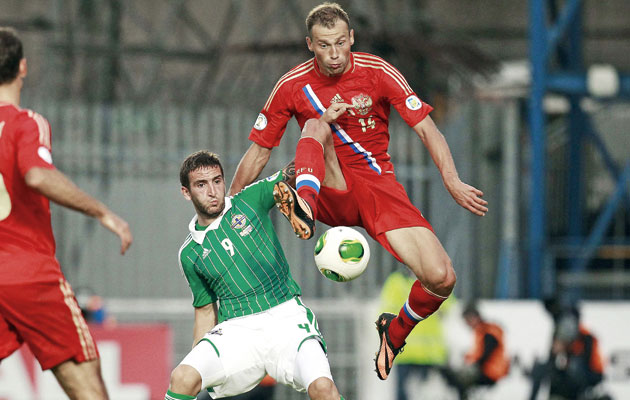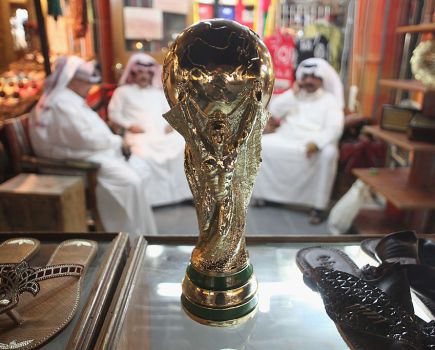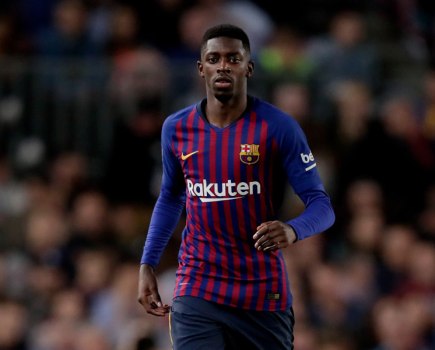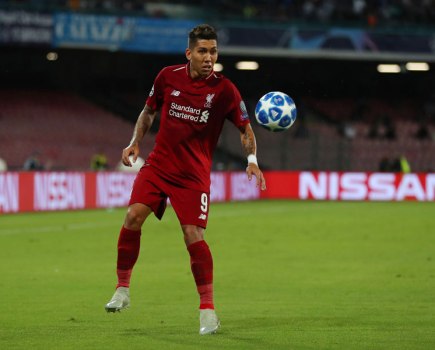Introduction
Although Russia will go into the 2014 tournament with one eye on their own hosting of the finals in four years’ time, many of those players who are set to be key in Brazil are unlikely to still be around in 2018.
Sergei Ignashevich, Vasili Berezutski, Yuri Zhirkov and Roman Shirokov are all over 30, while Alexander Kokorin, at 23, is probably the only relatively young player whose place in Fabio Capello’s squad is guaranteed. It is worth noting that the 23 that travel to South America under the Russian flag this summer will almost certainly be drawn exclusively from the domestic league, with the older generation – who played in England, Italy and Spain – now mostly retired, and the younger ones not getting serious offers from abroad.
Experience is one of Russia’s big strengths at the moment, but a lack of pace and possible fitness problems may lower the team’s chances of reaching the knockout stage. A mobile South Korea – even though Russia beat them 2-1 in a friendly in November – will pose a very serious threat, as will the young and rapidly progressing Belgium side.
Capello also has to deal with the Russian Premier League’s calendar change. Playing the season from autumn until spring is still a new experience for the Russian players and it is difficult to say what sort of condition they will be in physically come June.
Russia are contesting their first World Cup finals since 2002 and, recalling when Guus Hiddink led the team to Euro semi-finals in 2008, local fans are once again pinning their hopes on a charismatic, overseas boss. Six years ago, the Dutch coach Hiddink used the two-week training session prior to the tournament to miraculously improve the players’ physical conditioning.
Capello is also a man who knows what needs to be done and remains optimistic about the forthcoming tournament, despite the pessimists saying that the low standard of the Russian league does not give national captain Shirokov and his team-mates the feeling of a real international-level game.
Russian clubs’ poor performances in European competitions is a vivid testament to this in an environment where even the style of refereeing outside their homeland often leaves Russian players confused and bewildered.
Coach
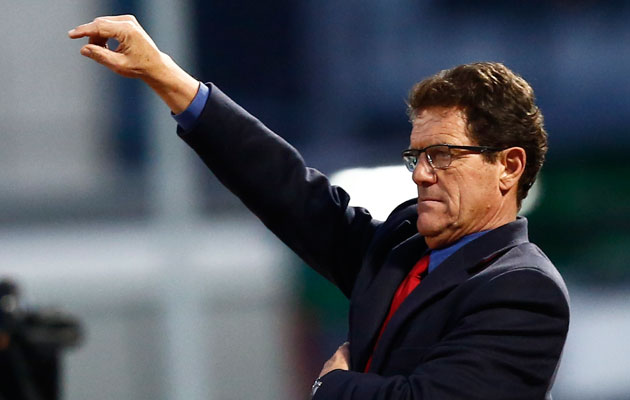
Fabio Capello (Ita)
Age 68 (18.06.46). Russia coach since July 2012
How he got the job
Took over from the departing Dick Advocaat after Russia’s exit from Euro 2012.
Past successes as a coach
Won the league title in nine of his 16 seasons in charge of Milan, Real Madrid and Juventus. Led Milan to Champions League victory
in 1994 and qualified England for the 2010 World Cup and Euro 2012 finals.
Past failures as a coach
Resigned as England manager in 2012 following a dispute with the FA.
Achievements as a player
Earned 32 caps for Italy as a midfielder, scoring eight goals. Won three Serie A titles with Juventus and one with Milan.
World Cup experience
Played in 1974, scoring against Poland as Italy lost 2-1 and failed to qualify for the second round. As a coach, he took England to the last 16 in 2010.
Relationship with the media
Watches domestic games more often than his predecessors, so he has a well-balanced, business-like relationship with the press. However, the team remains closed to the media most of the time.
Relationship with the public
Respected by the public, who acknowledge his experience and talent. He is welcomed even by those who think that only a Russian should be coach of the national team.
Style of management/coaching
Seemingly more on the conservative side, he has complained that his choices are very limited due to the insufficient number of Russian players in a league dominated by foreigners. Has introduced stricter disciplinary rules.
Notable backroom staff
He is assisted by former Italy defender Christian Panucci and ex-Russia goalkeeper Sergei Ovchinnikov.
After the World Cup
Recently signed a new contract until the end of the 2018 World Cup finals.
Squad
Goalkeepers: Igor Akinfeev (CSKA Moscow), Yuri Lodygin (Zenit St. Petersburg), Sergei Ryzhikov (Rubin Kazan).
Defenders: Vasily Berezutsky (CSKA Moscow), Sergei Ignashevich (CSKA Moscow), Georgy Shchennikov (CSKA Moscow), Vladimir Granat (Dynamo Moscow), Alexei Kozlov (Dynamo Moscow), Andrei Yeshchenko (Anzhi Makhachkala), Dmitry Kombarov (Spartak Moscow), Andrei Semyonov (Terek Grozny).
Midfielders: Igor Denisov (Dynamo Moscow), Alan Dzagoev (CSKA Moscow), Roman Shirokov (Zenit St. Petersburg), Denis Glushakov (Spartak Moscow), Viktor Faizulin (Zenit St. Petersburg), Oleg Shatov (Zenit St. Petersburg), Yuri Zhirkov (Dynamo Moscow), Alexander Samedov (Lokomotiv Moscow)
Forwards: Alexei Ionov (Dynamo Moscow), Alexander Kokorin (Dynamo Moscow), Maxim Kanunnikov (Amkar Perm), Alexander Kerzhakov (Zenit St. Petersburg).
Group H fixtures
Jun 17 v South Korea (Cuiaba)
Jun 22 v Belgium (Rio de Janeiro)
Jun 26 v Algeria (Curitiba)

